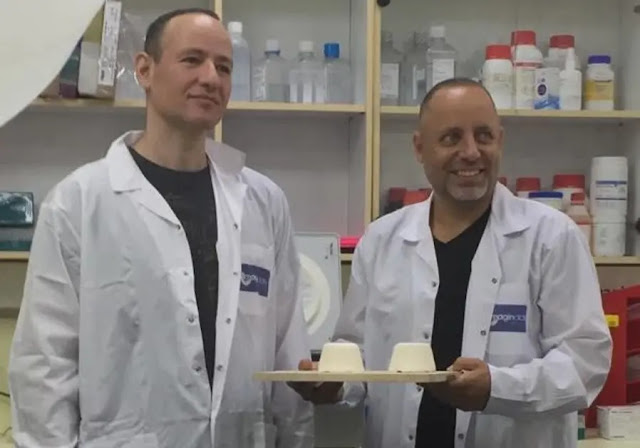Israeli researchers working to produce affordable cow's milk from yeast
The challenge is not only creating a completely new (and satisfying) product but also making it accessible to the general public.
By Tobias Segal, Jerusalem Post, January 3, 2021
Cartons of milk(photo credit: REUTERS) |
Can milk produced from yeast truly look and taste like cow's milk? According to researchers from Tel Aviv University (TAU) looking to revolutionize the dairy industry – it can.
As the world is becoming more aware of the damages caused by the modern dairy industry to the environment, to animals on a large scale and to our own health, more money is being invested in biotechnological companies around the world searching for ways to create better and more satisfying milk substitutes.
Prof. Tamir Tuller from TAU's Biomedical Engineering Department decided to invest his time and professional background in achieving just that, and together with entrepreneur Dr. Eyal Iffergan, he established a startup called Imagindairy, which, like its name suggests, attempts the impossible: producing cow's milk without any cows, but yeast, instead.
 |
| Prof. Tamir Tuller & Dr. Eyal Iffergan (Credit: Tel Aviv University) |
Prof. Tuller explained that the challenge is not only creating a completely new (and satisfying) product but also making it accessible to the public by promising pragmatic prices.
"This is a long process of improvement - of productivity, taste, and, of course, of the price. This product is not a milk substitute like almond or soy milk. We plan to produce dairy products that will be identical to products that come from animals by introducing the yeast genome to the genes that code for milk development in cows,” he explained.
Thus, taking a gene from one living organism and inserting it into the genome of another organism can serve as a biological "factory" for producing proteins encoded in that gene.
"Theoretically, we can reach a situation in which we can't tell the difference between cow's milk that comes from a cow and cow's milk that comes from yeast. But in order for that to happen in an economical way, we must turn the yeast cells into efficient factories that produce milk proteins – not a simple challenge to solve," Prof. Tuller said.
"Even though we know what the genes that encode the proteins for cow's milk are, those genes are written in the 'language' of cow cells, and need to be rewritten in the ‘language’ of yeast. This will make the production of the milk proteins possible in an appropriate, affordable, and efficient way in the yeast cell 'factory,'" he added.
"With the help of models that we developed in the laboratory, we believe that within a fairly short time, we will succeed in making yeast produce milk proteins [efficiently] that will enable affordable, high-quality industrial-scale, production," he concluded.



No comments:
Post a Comment
Stick to the subject, NO religion, or Party politics